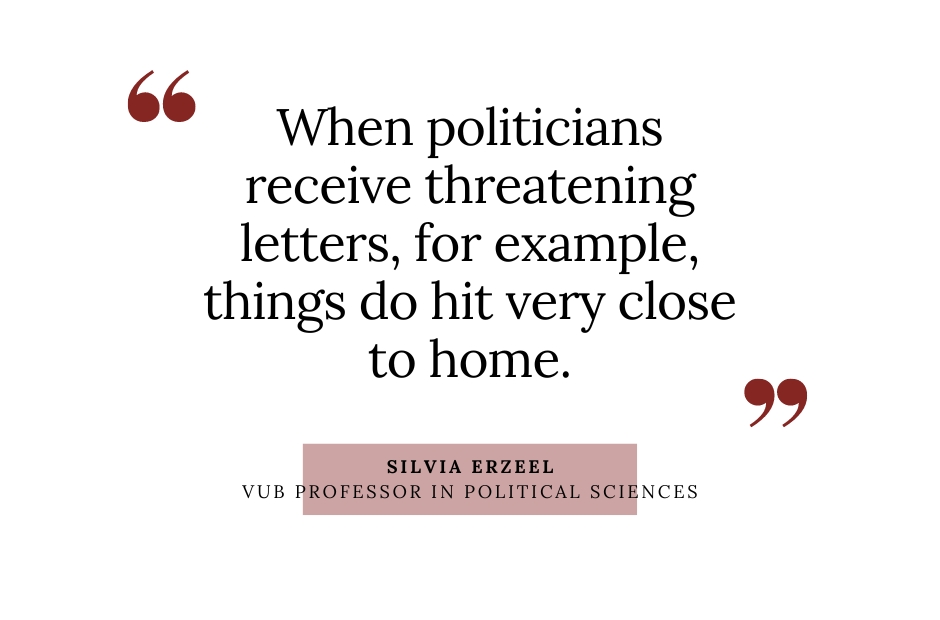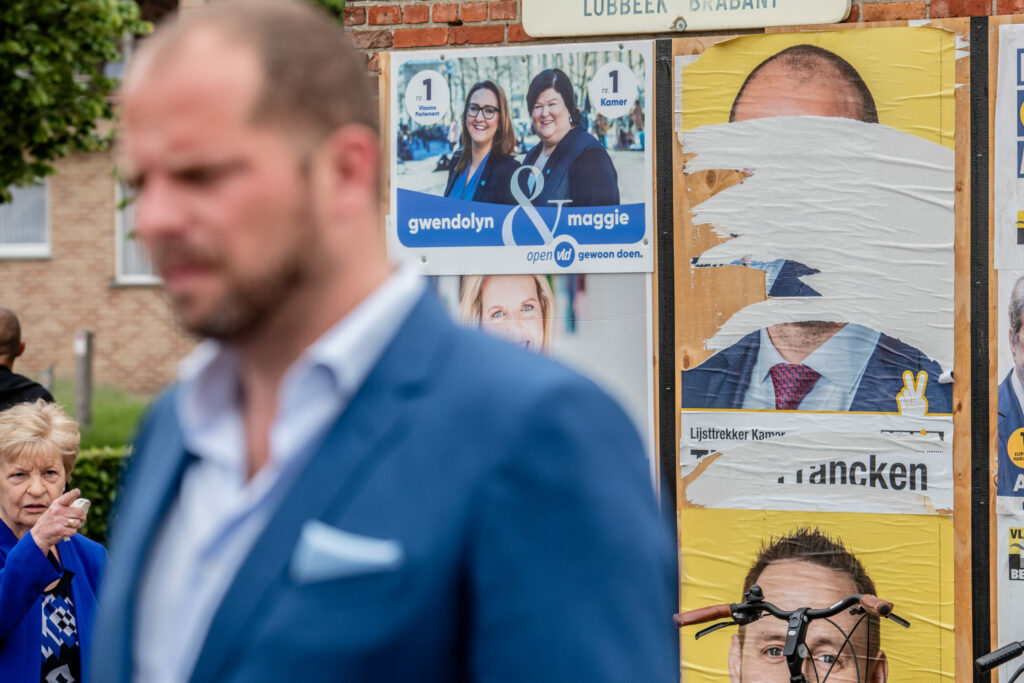Hate comments and other forms of online abuse are daily occurrences for most politicians in Belgium, recent research has shown. Political experts have warned this is an unignorable problem for democracy.
Numerous social media users cloak themselves behind the anonymity offered by the online world to post venomous comments, often targeting politicians with whom they disagree. Researchers at the political science department of the Vrije Universiteit Brussel (VUB) showed that this and other forms of violence can have a serious impact on the well-being of the victims, but also on the country's democratic system.
"Online violence, such as hate comments, occurs almost daily," said PhD researcher Anne Van Bavel. She surveyed a total of 215 federal and regional politicians about their experiences of violence. The cases primarily involved intimidation and threats.
Professor Silvia Erzeel added that the violence has an impact that cannot be underestimated. "When politicians receive threatening letters, for example, things do hit very close to home."
Not only online violence
Earlier this month, Flemish Environment Minister Zuhal Demir (N-VA) received an unsolicited photo of male genitalia in her inbox. Two years ago, former Justice Minister Vincent Van Quickenborne was placed under police protection and later went into hiding after receiving death threats from drug traffickers.
Politicians also face violence offline. Almost 20% of those surveyed reported regularly experiencing psychological forms of violence. This is just the tip of the iceberg as incidents are often not reported on publicly.

In recent years, the Federal Crisis Centre observed a rise in the number of serious threats against people in public office, which mainly concerns politicians. Together with the anti-terrorism agency OCAD and the federal police, it takes necessary measures on a case-by-case basis from tips on how to better secure a home to having a direct contact person within the police, extra police patrols outside the home and even placement in safe houses.
VUB researchers also found that, while most cases of abuse related to political positions, among women, politicians with a migration background and young politicians, the violence is more personal and often refers to their gender, ethnicity and/or young age.
"Female politicians also reported sexual violence remarkably more often and said they frequently have to hear sexist remarks and jokes from colleagues. Especially politicians with a migration background reported that the violence (which is also often racially tinged) makes them consider leaving politics more often," said Van Bavel. This is especially true for younger politicians, and can have "a heavy mental impact."
Risk to democracy
Concerned for their safety, female politicians in Belgium – but also the United Kingdom and France – undertake various measures to protect themselves, which also include self-censoring and opting out of speaking on social media about certain issues. Others are leaving their jobs, endangering a diverse range of elected officials.
However, abuse and intimidation of elected politicians pose a wider risk to democracy, Erzeel noted. "Violence towards politicians is problematic: it hinders politicians from doing their jobs as representatives, causes some politicians to leave politics early, and can also deter young people – the future generation of politicians – from entering politics."
Related News
- Seven in ten Belgians would still vote without compulsory attendance
- Flemish Minister files complaint after receiving explicit photo in inbox
- Flying high: Belgian politicians' costly trips leave massive CO2 footprint
Last year, the French-speaking Green Party (Ecolo) announced it wanted to tackle social media abuse against politicians, either by criminally charging perpetrators in court or by limiting political party spending on social media adverts. The party noted that this will allow all politicians, but especially women and young people "with different profiles", to express themselves online with "security".
The party suggested a change in the Belgian Constitution to ensure that the authors of online abuse are charged criminally in court for their actions.
However, no steps have been taken to improve this security yet. With the elections around the corner, often going hand in hand with a rise in political presence online, it is likely the cases of abuse will rise in the coming months.

